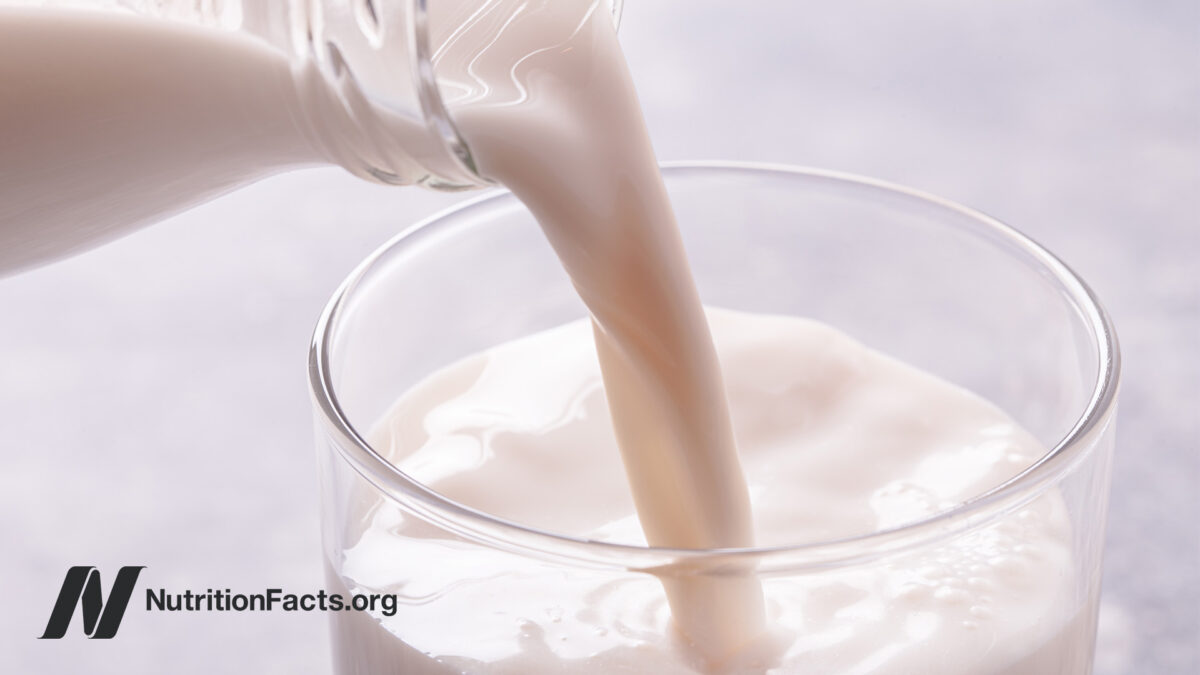
Dairy
Milk, it does a body good, right?
More Milk, More Fractures, More Disease, and More Premature Death?
In the population study “Milk Intake and Risk of Mortality and Fractures in Women and Men,” researchers following more than 100,000 men and women in Sweden for about 20 years found significantly higher rates of bone and hip fractures, heart disease, cancer, and premature death in general for women who drank more milk. Three glasses a day was associated with nearly twice the risk of dying early. Men with higher milk consumption were also recorded having a higher risk of premature death.
Harvard researchers then stepped in with three of their cohorts to form a study twice as big to see whether the Swedish findings were just a fluke. After following more than 200,000 men and women for up to three decades, they confirmed the bad news in 2019. Those who consumed more dairy lived significantly shorter lives. Every additional half-serving of regular milk a day was associated with 9 percent increased risk of dying from cardiovascular disease, 11 percent increased risk of dying from cancer, and an 11 percent increased risk of dying from all causes put together. This is all the more remarkable since milk drinking is typically associated with healthier lifestyles, including more exercise and less smoking and drinking, though the researchers did try to adjust for those factors.
High dairy consumption in general was also associated with dying prematurely, but it matters what you eat instead. A Harvard analysis published in the New England Journal of Medicine found that swapping dairy for red meat, poultry, or fish would not be expected to do your body any favors, and you would be expected to live longer eating dairy rather than eggs or processed meat. It was only when plant-based sources of protein were chosen instead of dairy that the researchers found a significant drop in mortality risk.
Sex Steroid Hormones in Milk
All animal-based foods contain sex steroid hormones, such as estrogen. These hormones naturally found even in organic cow’s milk may play a role in the various associations identified between dairy products and hormone-related conditions, including acne, diminished male reproductive potential, and premature puberty. The hormone content in milk may explain why women who drink it appear to have five times the rate of twin births compared with women who do not drink milk.
Dairy and Cancer
When it comes to cancer, leading experts have expressed concern that the hormones in dairy and other growth factors could potentially stimulate the growth of hormone-sensitive tumors. Experimental evidence also suggests that dairy may also promote the conversion of precancerous lesions or mutated cells into invasive cancers in vitro.
What About Ear Infections?
The association between cow’s milk exposure and recurrent ear infections in susceptible children has been documented for more than 50 years. Though there are rare cases of pathogens in milk directly causing ear infections (then meningitis), the link is thought to be due to milk allergies. In fact, there’s a respiratory disease called Heiner Syndrome, a lung disease of infants primarily caused by milk consumption that can cause ear infections.
Milk Allergies
Though milk allergies most often results in respiratory, gastrointestinal, and skin symptoms, as many as 1 in 500 may suffer speech delay due to chronic inner ear inflammation. For decades, it’s been recommended that children with recurrent ear infections try a three-month trial of a strict cow’s milk elimination diet, but the recommendation of Dr. Benjamin Spock, probably the most respected pediatrician of all time, is a life-long elimination of cow’s milk.
Other Health Concerns
Dairy consumption may also play a role in increased risk of asthma, Parkinson’s disease, and elevated blood pressure, among other health concerns such as recurring canker sores.
For substantiation of any statements of fact from the peer-reviewed medical literature, please see the associated videos below.
Popular Videos for Dairy

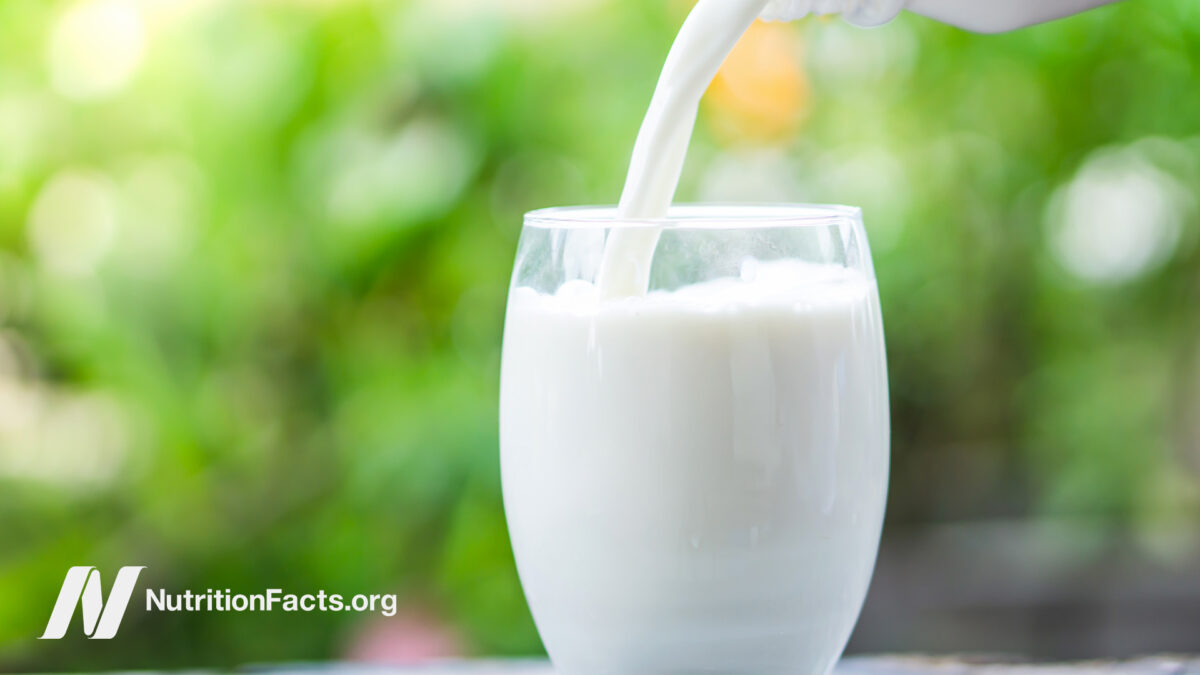
Why Do Milk Drinkers Live Shorter Lives on Average?
How might we reduce the risk of premature death from dairy consumption?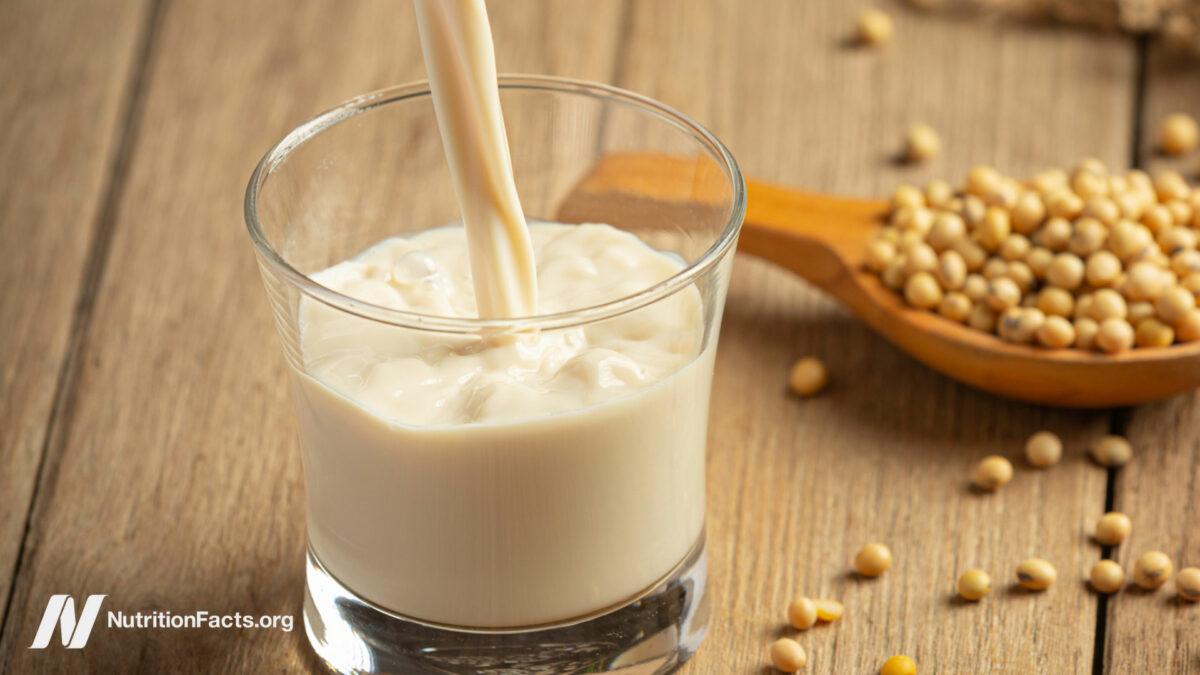
Is Soy Milk the Most Nutritious Non-Dairy Milk?
Soy milk is compared to dairy milk and other plant-based milks.
The Effects of Hormones in Milk on Infertility in Women
Dairy consumption is associated with years of advanced ovarian aging, thought to be due to...
The Effects of Hormones in Dairy Milk on Cancer
What are the effects of the female sex hormones in milk on men, women, and...
How to Treat Reflux in Children with Diet
Hypersensitivity reactions to dairy products even in those who test negative for cow’s milk allergy.
Is Butter Really Back? What the Science Says
Is butter—and other saturated fats—bad for you or not?
Is Cheese Healthy? Compared to What?
Dairy is compared to other foods for cardiovascular (heart attack and stroke) risk.
Is Cheese Really Bad for You?
What about the recent studies that show cheese has neutral or positive health effects?
How the Dairy Industry Designs Misleading Studies
How the meat and dairy industries design studies showing their products have neutral or even...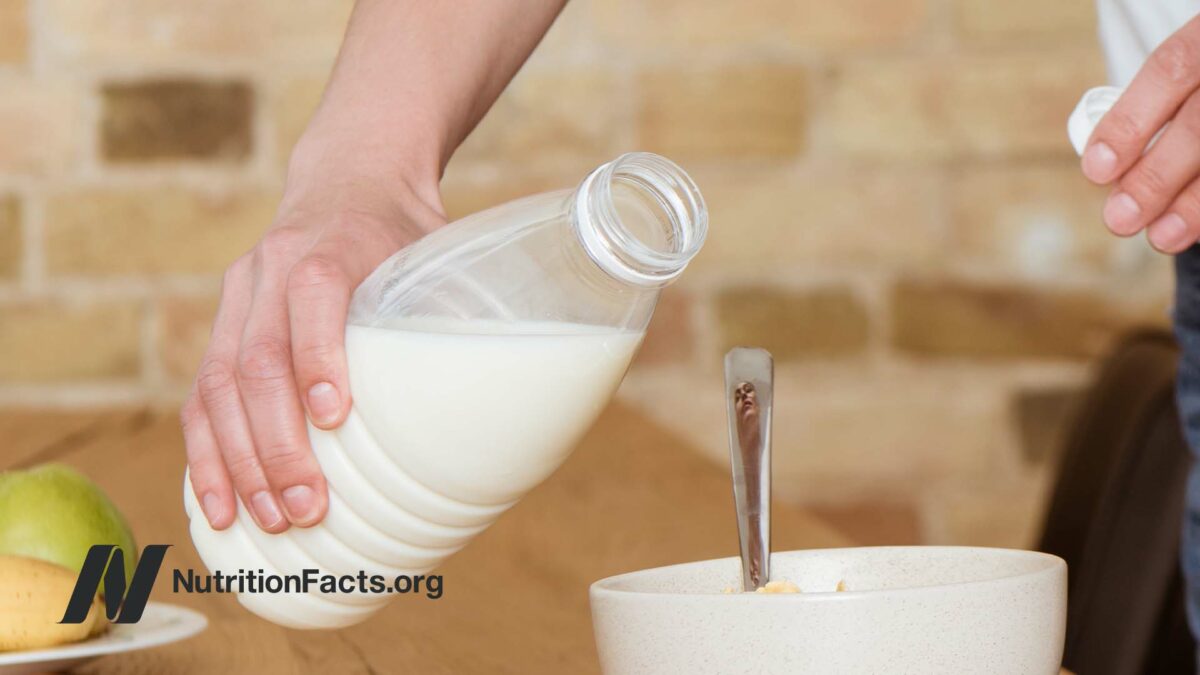
Autism and Casein from Cow’s Milk
Casomorphins—breakdown products of casein, a milk protein, with opiate-like activity—may help explain why autism symptoms...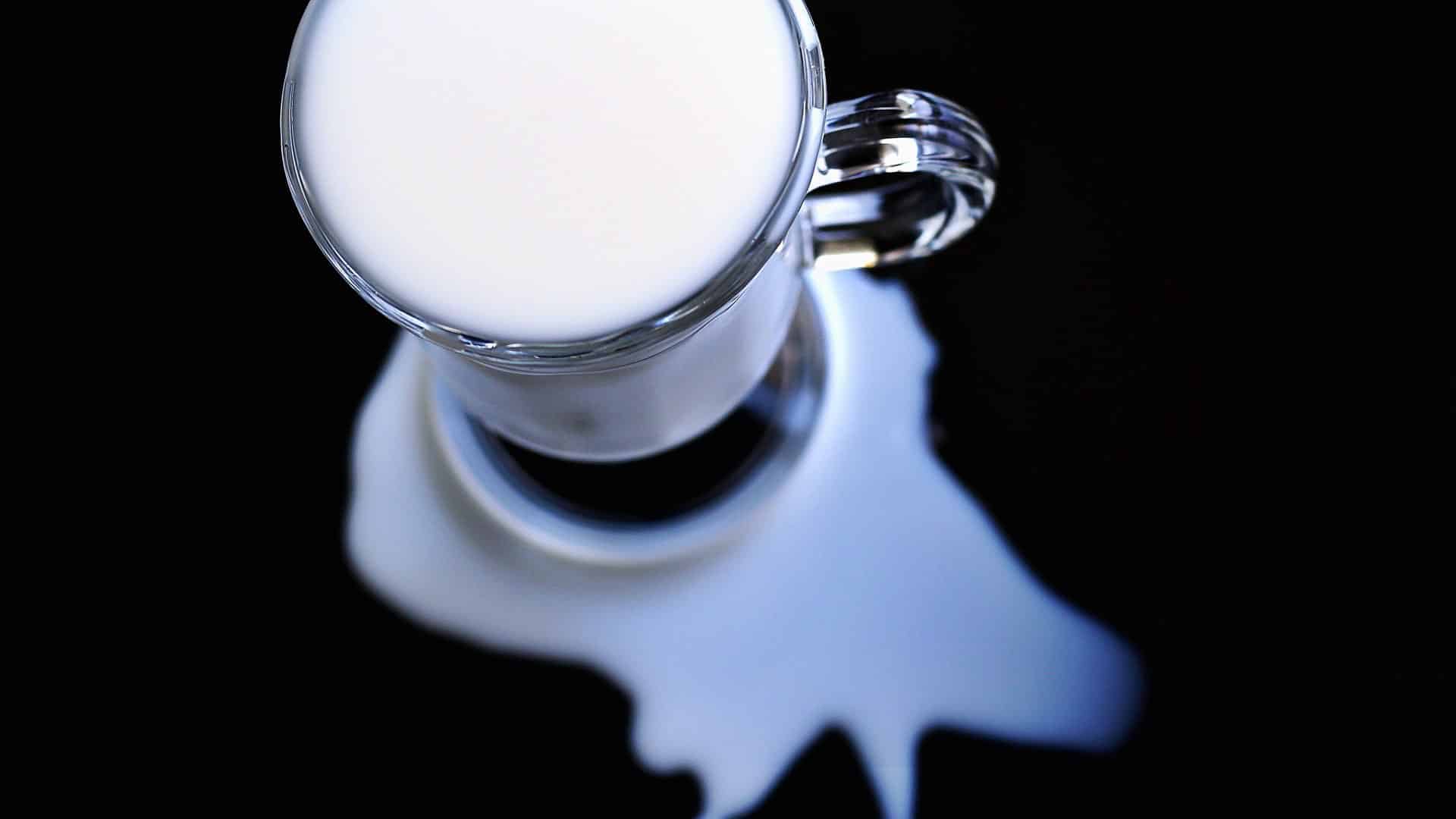
Does Paratuberculosis in Milk Trigger Type 1 Diabetes?
“Fear of consumer reaction” led the U.S. dairy industry to suppress the discovery in retail...
Could Lactose Explain the Milk and Parkinson’s Disease Link?
Neurotoxin contamination of the dairy supply doesn’t explain why the association between Parkinson’s and skim...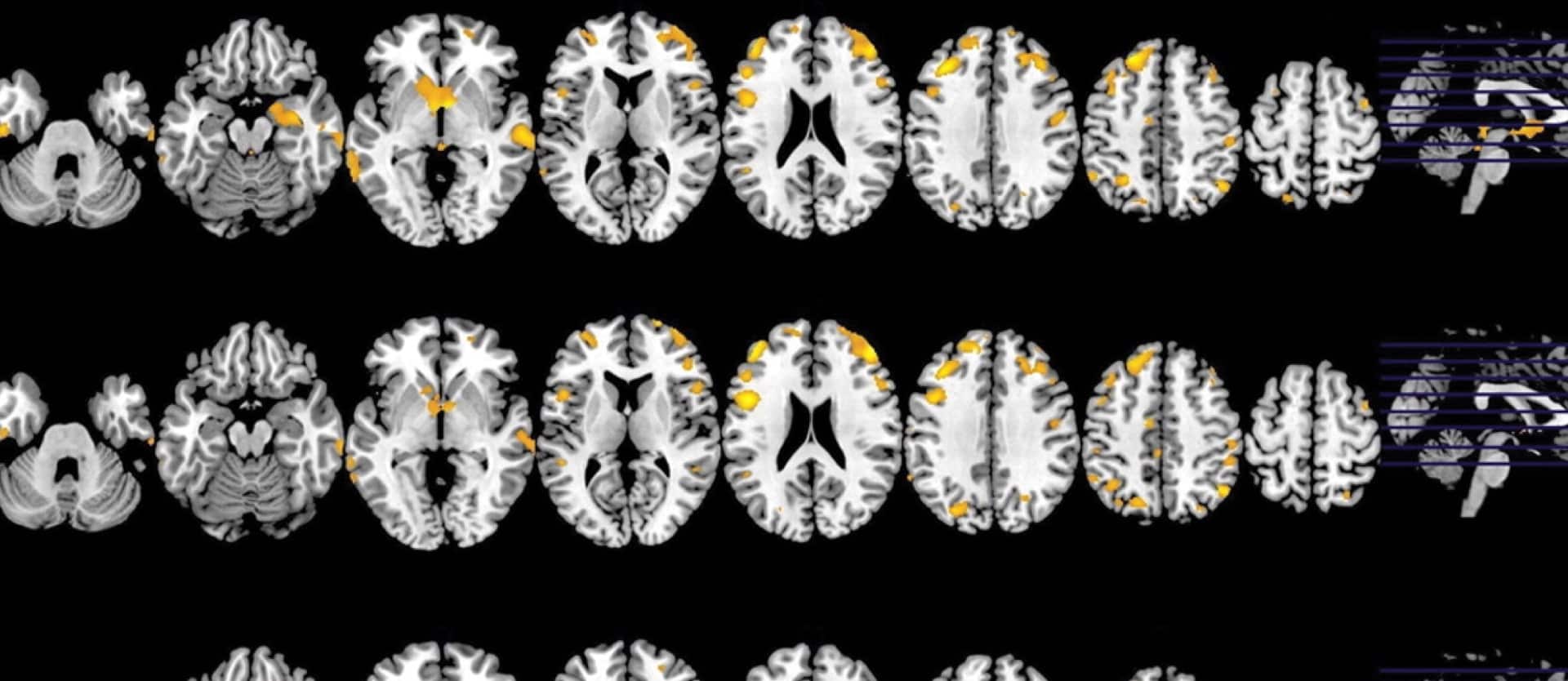
Preventing Parkinson’s Disease with Diet
Low levels of neurotoxic chemicals in cheese may explain the connection between dairy product consumption...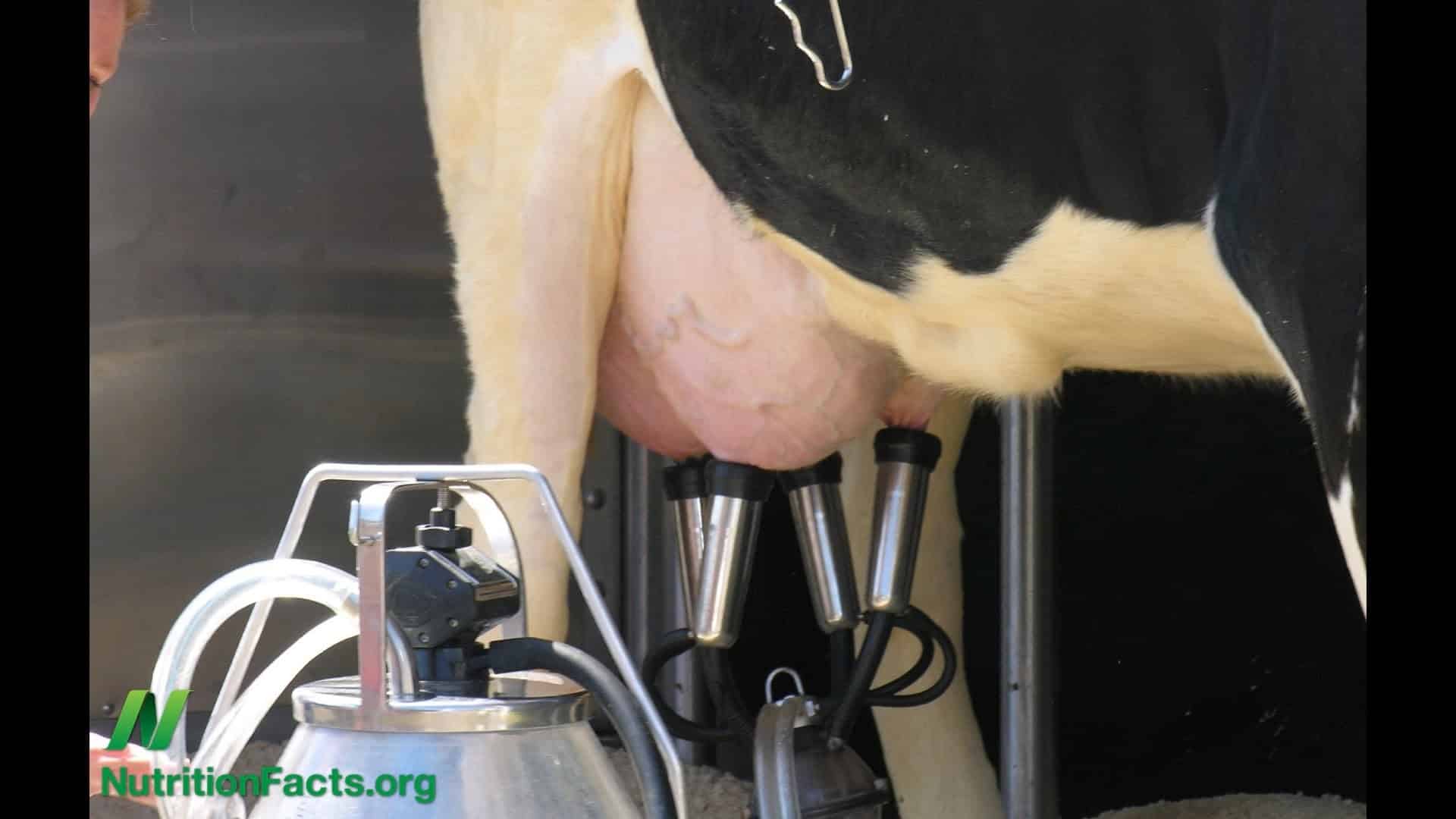
Cow’s Milk Casomorphin and Autism
Opiate-like casomorphins liberated from the cow’s milk protein, casein, are accused of participating in the...
Is Milk Good for Our Bones?
The galactose in milk may explain why milk consumption is associated with significantly higher risk...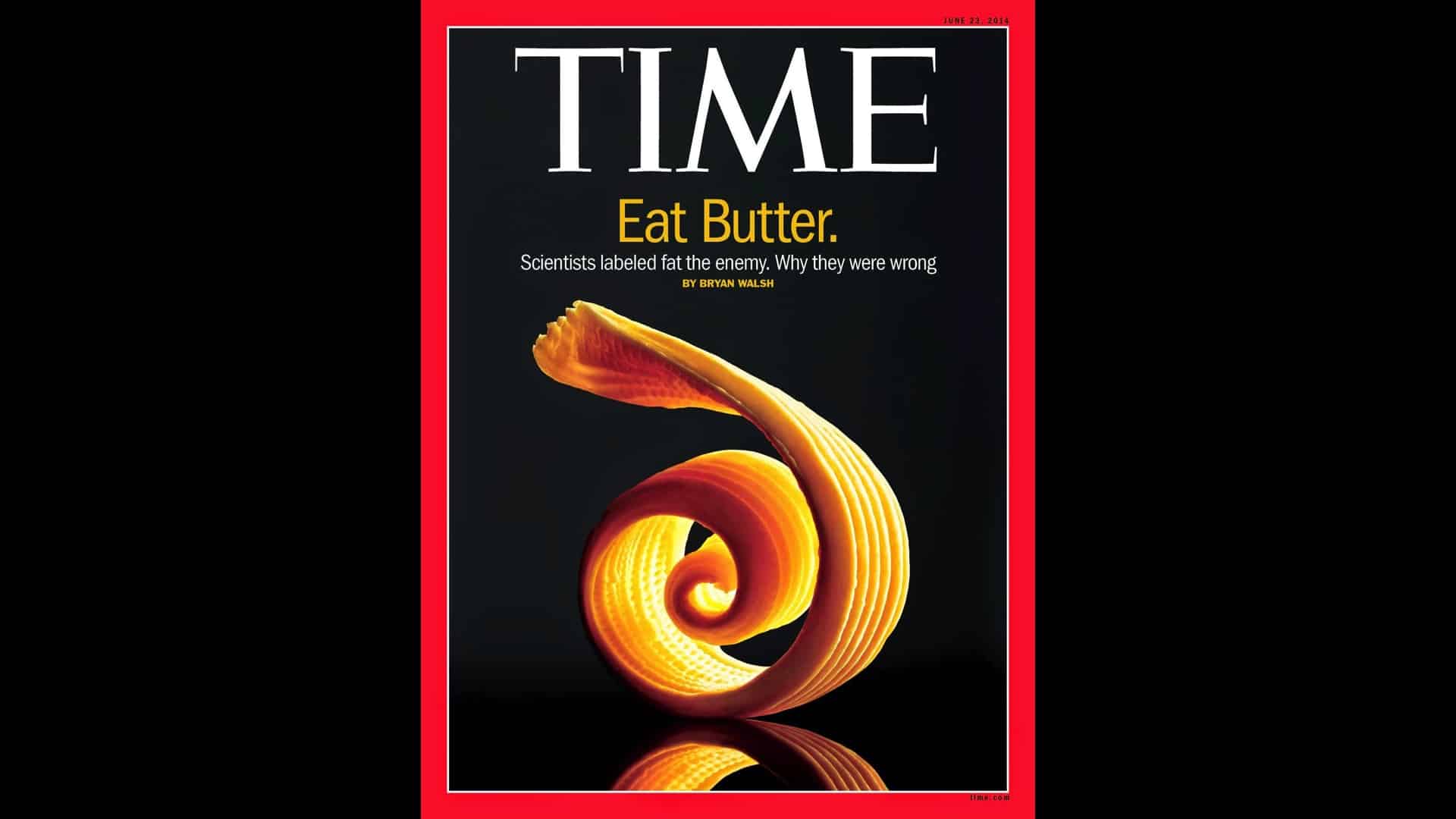
The Saturated Fat Studies: Buttering Up the Public
Dairy industry campaign to “neutralize the negative image of milkfat among regulators and health professionals...
The Saturated Fat Studies: Set Up to Fail
How might Big Butter design a study (like the Siri-Tarino and Chowdhury meta-analyses) to undermine...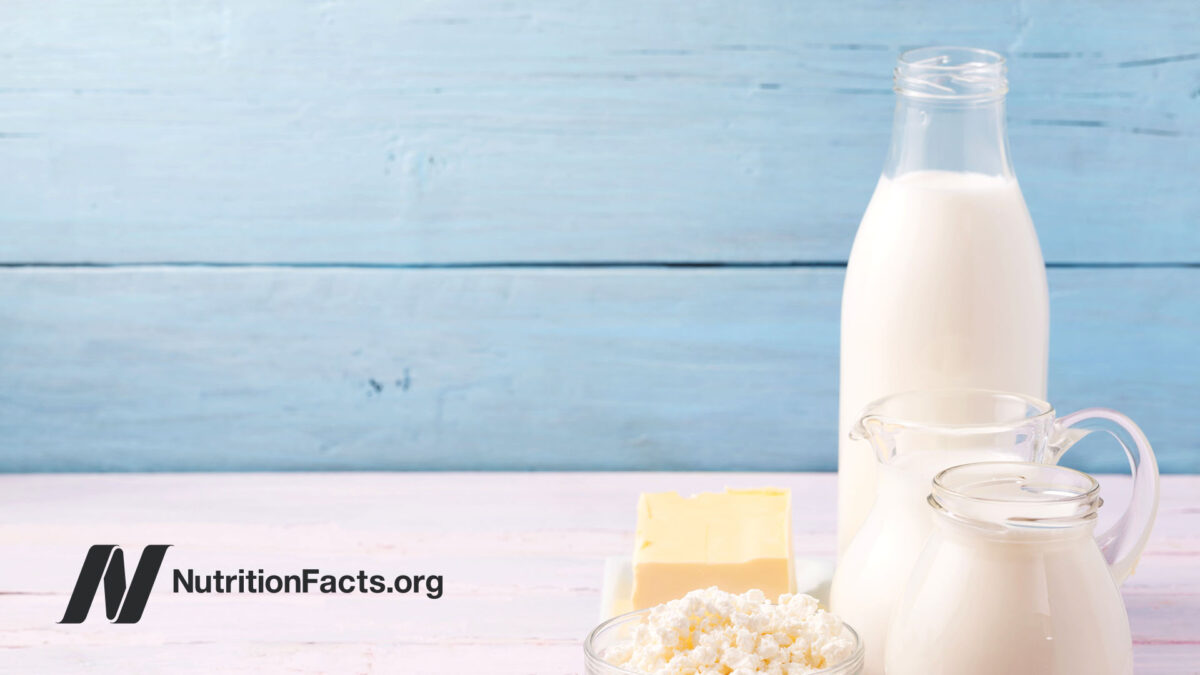
Why Do Vegan Women Have 5x Fewer Twins?
The hormones naturally found in foods of animal origin may help explain why women who...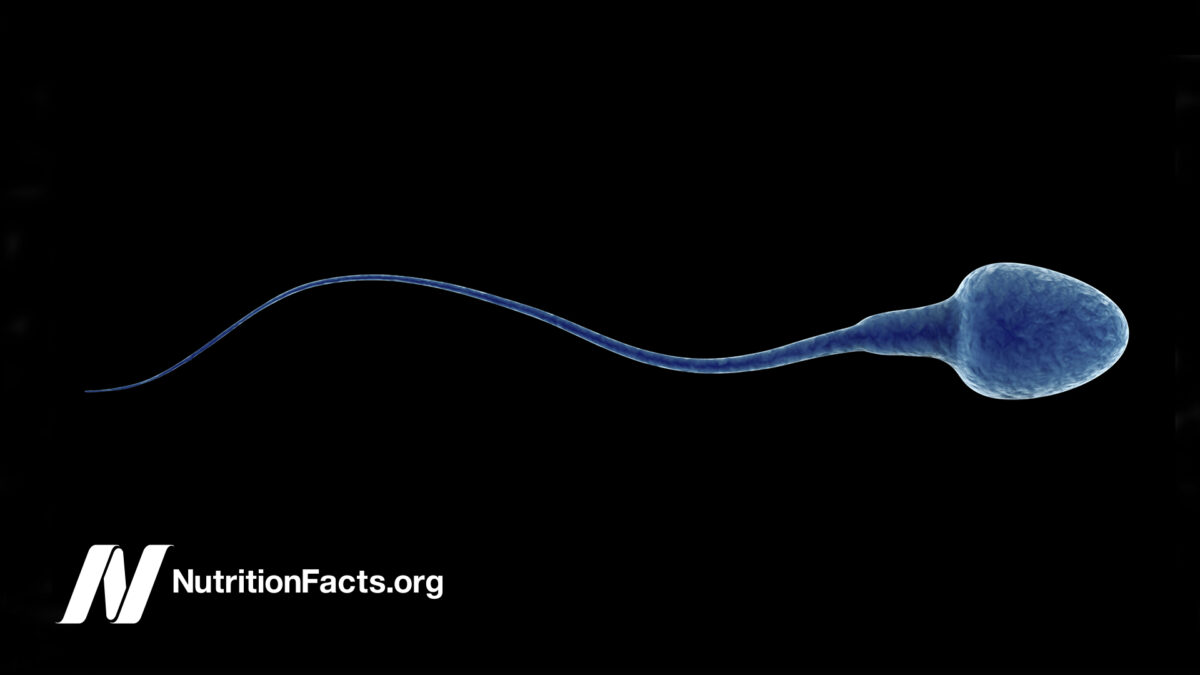
Dairy Estrogen and Male Fertility
Sex steroid hormones in meat, eggs, and dairy may help explain the link between saturated...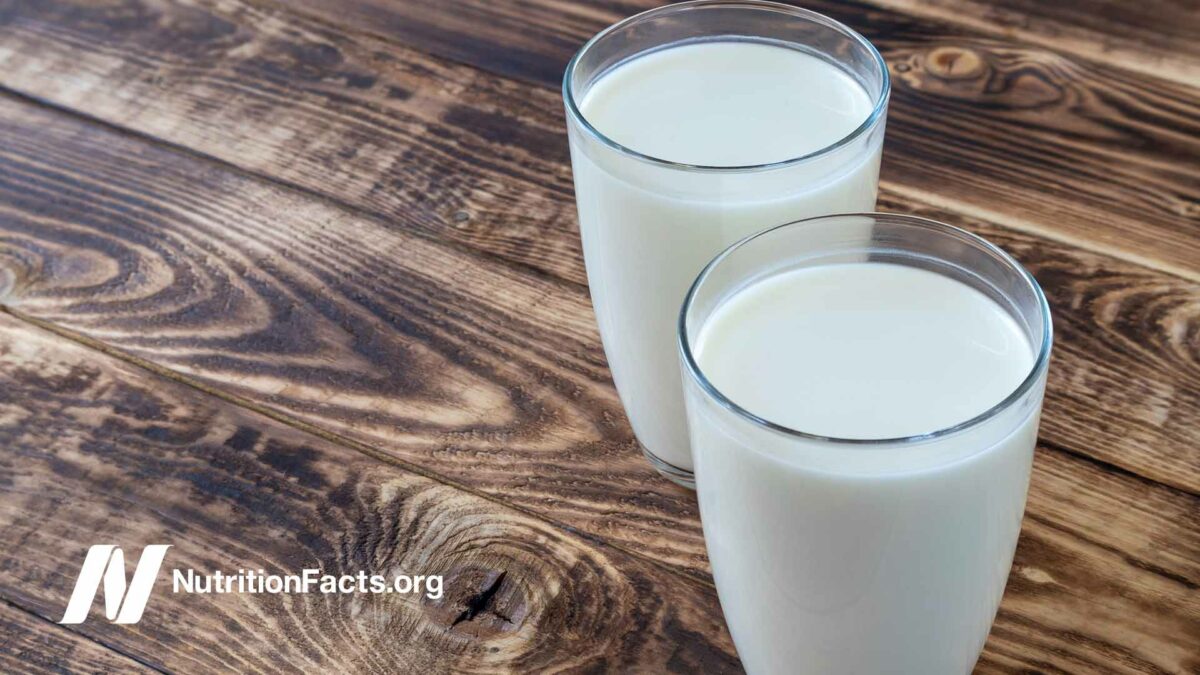
Childhood Constipation and Cow’s Milk
The elimination of all dairy products was found to cure constipation in up to 100%...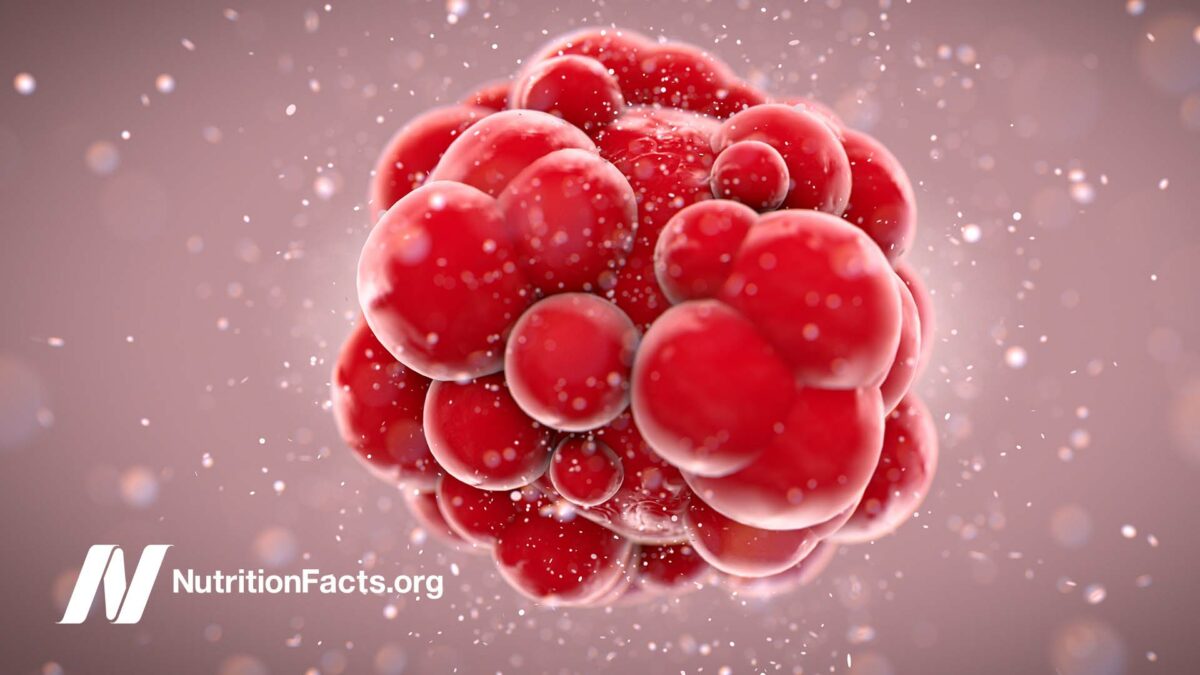
Prevent Cancer from Going on TOR
Suppressing the engine-of-aging enzyme TOR (Target of Rapamycin) by reducing intake of leucine–rich animal products,...
Saving Lives by Treating Acne with Diet
Over-activated TOR signaling may help explain the link between acne and subsequent risk for prostate...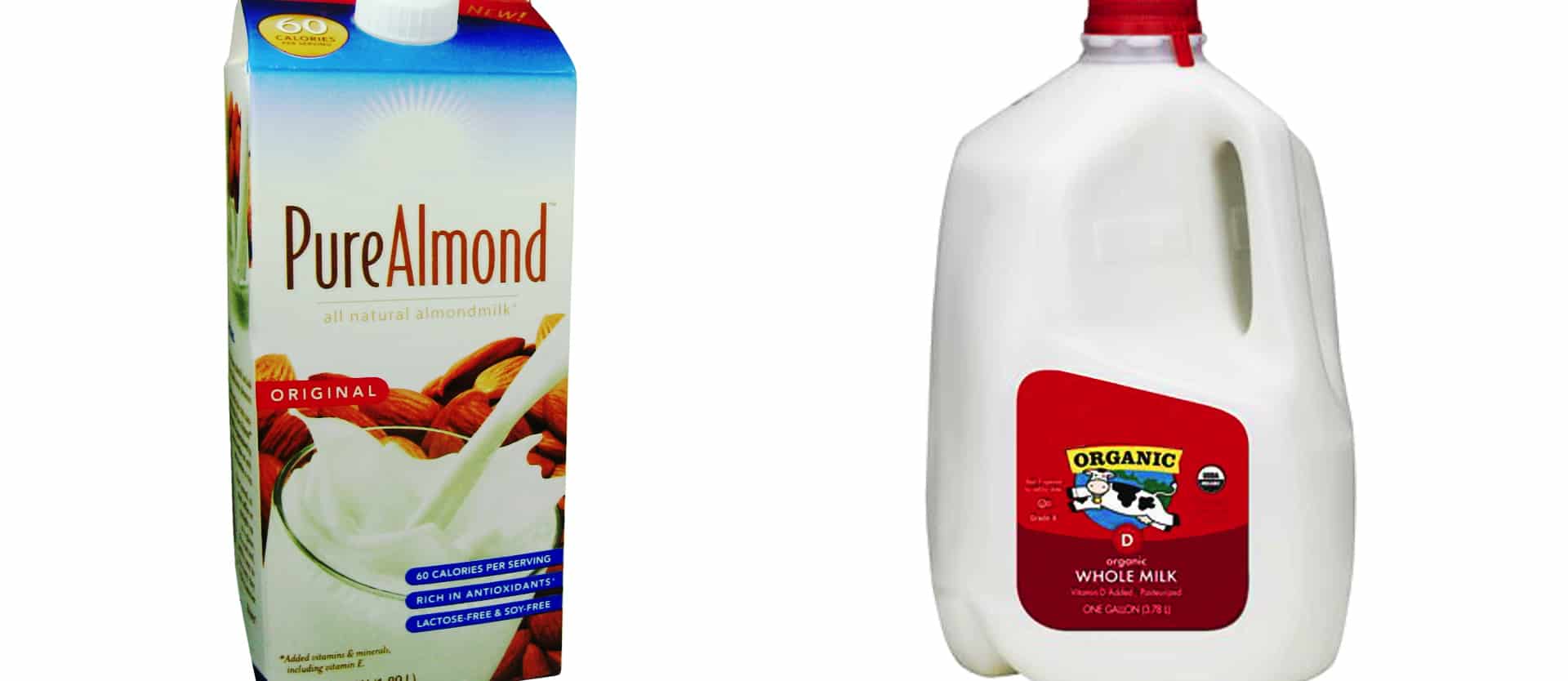
Prostate Cancer and Organic Milk vs. Almond Milk
Does the hormonal stimulation of human prostate cancer cells by cow milk in a petri...
Treating Infant Colic by Changing Mom’s Diet
Cow’s milk proteins can pass through breast milk—which may explain why maternal dairy-free diets are...All Videos for Dairy
-

Hepatitis E Virus in Pork
At a retail level, about 10 percent of commercial pork products tested contain the hepatitis E virus.
-

Is There Really Pus in Milk?
What does the “milk pus test” tell us about the U.S. milk supply?
-

The Best Dietary Detox
By eating at a lower rung on the food chain, those choosing plant-based diets suffer less exposure to the industrial pollutants that bioaccumulate up the ladder.
-

How to Prevent Wrinkles with Diet
The evidence supports the recommendation to follow a whole food, plant-based diet for healthier looking skin.
-

Three Reasons Fruits and Vegetables May Reduce Osteoporosis Risk
Even just a single extra serving of fruits and vegetables per day is associated with lower bone fracture risk.
-

The Best Mouthwash for Halitosis (Bad Breath)
Most mouthwashes just mask the odor. How do you treat the cause of bad breath?
-

Why Do Milk Drinkers Live Shorter Lives on Average?
How might we reduce the risk of premature death from dairy consumption?
-

Soy Foods for Menopause Hot Flash Symptoms
Soy can be considered a first-line treatment for menopausal hot flash and night sweat symptoms.
-

Soy Milk for Vaginal Menopause Symptoms
Soy foods may explain why Japanese-American women not only have the lowest rates of hot flashes in the United States but also have the lowest rates of vaginal dryness.
-

The Best Diet for COVID and Long-COVID
Healthy plant-based diets appear to help reduce the risk of severe COVID-19 and getting infected in the first place, even independent of comorbidities.
-

Is Soy Milk the Most Nutritious Non-Dairy Milk?
Soy milk is compared to dairy milk and other plant-based milks.
-

Greens, Green Tea, and Nuts Put to the Test for Telomeres
Not all plant foods are linked to less cellular aging based on telomere attrition, and not all animal foods are linked to more.
-

Fasting to Detox
How might we help flush the pollutants stored in our fat that come spilling out into our bloodstream during weight loss?
-

Plant-Based Pregnancy Outcomes and Breast Milk
The composition of breast milk is compared between vegetarian and nonvegetarian women.
-

Plant-Based Diet for Treating and Reversing Stage 3 Kidney Disease
I share a touching story of the power of plant-based eating for chronic kidney failure.
-

A Case of Stage 3 Cancer Reversal with Fasting
I go over a case report of water-only fasting, followed by a whole food, plant-based diet for follicular lymphoma.
-

Dietary Guidelines: “Eat as Little Dietary Cholesterol as Possible”
Why do the official federal Dietary Guidelines for Americans recommend limiting the intake of dietary cholesterol (found mostly in eggs) as much as possible?
-

The Impacts of Plant-Based Diets on Breast Cancer and Prostate Cancer
Why do people who eat more plants get less breast and prostate cancer?
-

The Role of Endotoxins in Alzheimer’s and Dementia
Why can a single meal high in saturated fat impair cognition?
-

Treating Parkinson’s Disease with Fava Beans (Faba or Broad Beans)
Fava bean sprouts and soy nuts are put to the test for Parkinson’s disease as natural sources of L-dopa.
-

Potential Vitamin and Mineral Deficiency Risks on a Vegan Diet
What is the best way to get the nutrients of concern on a plant-based diet?
-

Does Dietary Cholesterol (Eggs) Raise Blood Cholesterol?
Even nine out of ten studies funded by the egg industry show that eggs raise cholesterol.
-

Do Vegans Have Lower Bone Density and More Fractures?
What are the bone fracture rates of omnivores vs. vegetarians vs. vegans?
-

The Purported Benefits of Vitamin K2: Should You Take Supplements?
Our body can make vitamin K2 from the K1 in green leafy vegetables.
-

Do Alkaline Diets Help Athletic Performance?
Can reducing acid-forming foods and boosting alkaline-forming foods replicate the performance-enhancing effects of sodium bicarbonate without the adverse effects?
-

Antibiotic-Resistant E. coli and UTIs in Vegetarians vs. Meat-Eaters
Tainted chicken may result in more than a million urinary tract infections in American women every year.
-

Advanced Glycation End Products (AGEs) and Cognitive Decline
AGEs may be one explanation for why those who consume meat may have up to three times the risk of developing dementia compared with vegetarians.
-

Lower Protein Diet Proven to Help Kidney Disease
How might we cut the risk of dialysis and death in half?
-

How to Avoid the Boomerang Effect of Remedy Messaging
How can mandating healthy eating messaging on fast-food ads ironically make things worse?
-

How to Naturally Reduce Wrinkles with Food
Almonds are put to the test in a randomized controlled trial for facial wrinkles.
-

Dietary Approach to Naturally Treating Menopause Symptoms
Specific foods have been shown in randomized controlled trials to improve symptoms like hot flashes.
-

Foods That Cause and Help Halitosis (Bad Breath)
Most bad breath is due to the decay of sulfur-containing proteins.
-

Antibiotic Resistance Genes in the Guts of Vegetarians vs. Meat-Eaters
Those eating plant-based have a reduced load of antibiotic resistance genes in their gut.
-

The Best Diet for Healthy Aging
Swapping just 1 percent of plant protein in place of animal protein was associated with significantly less age-related deficit accumulation.
-

The Best Diet for Treating Atrial Fibrillation
What foods should we eat and avoid to reduce our risk of Afib?
-

Coffee Put to the Test for Treating Parkinson’s Disease
Coffee can improve Parkinson’s symptoms within three weeks compared to placebo, but do the benefits last?
-

How to Cultivate a Healthy Gut Microbiome with Food
Our gut flora is determined by what we eat, for good or for ill.
-

Animal Protein vs. Plant-Based Protein
I discuss a public health case for modernizing the definition of protein quality.
-

Saturated Fat Causes Artery and Lung Inflammation
What happens within hours of eating a high-fat meal?
-

Pesticides (DDT) and Alzheimer’s Disease
How can we avoid the breakdown product of pesticides that may increase the risk of Alzheimer’s disease as much as if you carried APOE e4, the so-called Alzheimer’s gene?
